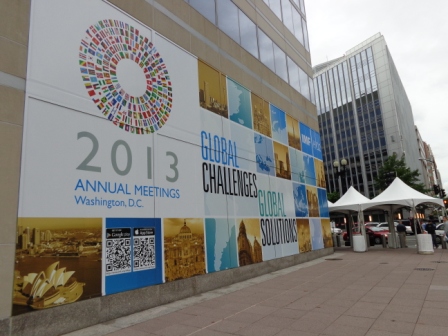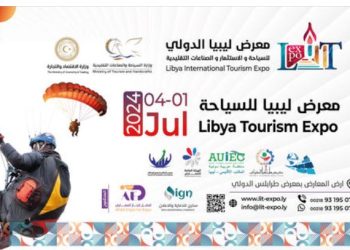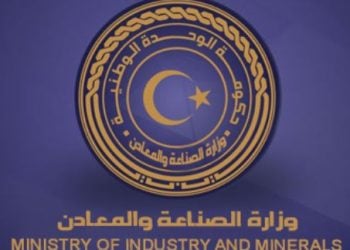By Sami Zaptia.

Tripoli, 21 October 2013:
Libya Herald was invited as a representative of Libyan media by the IMF to attend . . .[restrict]the World Bank-IMF Annual Meetings 2013 held in Washington DC between 8-12 October.
During this event Libya Herald was able to meet numerous members of the World Bank working with Libya, including Marouane El Abassi, the World Bank Resident Representative in Tripoli.
Libya Herald asked El Abassi to provide a summary of the World Bank’s work in Libya.
The World Bank’s work with Libya following the revolution seeks to help the authorities strengthen the relationship between government and citizens by supporting the Libyan authorities in their work in three main areas, El Abassi explained.
The first area is helping Libya build transparency and accountability in the public sector, by strengthening the management of public resources, including Public Finance Management (PFM) and procurement and capacity building for government officials.
The second area comes under the heading of Private Sector Development in the form of long term and short term job creation and private and financial sector development.
And the third main heading under which the World Bank provides help to Libya comes in the service delivery area with regional and urban development, local government laws and infrastructure services such as in the information and communications technology, energy efficiency and renewable energy.
Most of the help provided to Libya by the World Bank is funded either by the World Bank or from its trust and is focused on providing technical assistance, El Abassi added.
Transparency and accountability in the public sector
The World Bank involvement in post-Qaddafi Libya started in October 2011, working jointly with the International Monetary Fund (IMF) dealing with Public Finance Management (PFM) and a request by Libya to help release Libya’s frozen assets.
It soon became very clear to the World Bank that there was a need to improve PFM working with the Ministry of Finance and Planning, El Abassi explained.
“The World Bank is very committed to supporting Libya in laying the foundation for a more vibrant and competitive economy with a level playing field for the private sector to create sustainable jobs and wealth,” said El Abassi.
“We are also working on building institutional capacity to implement reforms and programmes while ensuring that citizens have a role in defining and voicing their communities’ best interests,”, he added.
The IMF, which works either totally independently or sometimes in cooperation with the World Bank, works mostly on macro fiscal matters, while the World Bank is focused more on Public financial management, as well as public investment management (under Chapter 3) which is coordinated between the Ministry of Finance and Ministry of Planning. For example, the World Bank is helping the authorities create a Single Treasury Account for all the Libyan Ministries to improve how expenditures are managed, explained El Abassi.
The World Bank is also helping Libya on governance and capacity building for the Prime Minister’s office. It is also providing support to help other Ministries as well as the “2030 Vision” Committee, the cross Ministerial committee set up to create long term strategies and visions for Libya.
The World Bank is also helping Libya in its desire to design subsidy reforms, a subject that is very topical in all three North African “Arab Spring” states. The work on subsidy reform was initiated in Libya with the involvement of UNICEF and its concern about social safety nets and evolved into subsidy reform discussions when the government began to prepare a study on subsidies, El Abassi said.
The World Bank was able to take the 2009 Ministry of Planning household survey and clean and analyze the data to make projections on the different impact of reforms and will be subsequently discussing the results with government, he revealed.
Technical Assistance on statistics
The World Bank has been giving Libya technical assistance to the statistics department since 2008, having done many surveys and a lot of training. Following the revolution, the Bank has also been working on labour issues, the household survey and the price index.
This work includes training Libyans locally and abroad at the Institute of Statistics in Morocco to help them do their daily work better, said El Abassi.
The National Account
The World Bank has also been working with Libya on their National Account since 2009/10. After the revolution it helped write the regulations and recruited 15 people for this. Today there is a Department of the National Account of 15 people which was adopted under the previous Al-Kib government. Before the end of 2013, the World Bank plans to hold a workshop on the National Account in Libya revealed El Abassi.
Private and financial sector development
The second area in which the World Bank is helping Libya is in the private and financial sector development. The Bank prepared an investment climate assessment and presented a document in December 2010 which was published in June 2011. This was the first such assessment prepared for Libya. The assessment revealed that two of the main challenges for investors are access to land and access to finance.
The Central Bank of Libya also asked the Bank to conduct a fiscal sector review in 2012. The World Bank now wants to help implement the recommendations of the report. The program will help recruit an international expert to work and develop 2-3 Libyan experts.
The World Bank is also working with the Ministry of Labour to help design an employment strategy and carried out a rapid labour assessment. Libya has the paradox of high unemployment and high foreign labour.
Service delivery
The final area in which the World Bank offers help to Libya is the service delivery area in local governance and decentralization. The World Bank prepared four reports in this area: a review of the 2011 local governance law; a review of the decentralization experience in Libya; the mapping of institutions at the local level; and working on economic visions for Tripoli, Benghazi and Sabrata.
The World Bank have also had a request from the Ministry of Telecommunications to help with their broadband strategy which it is also working very closely to support.
It is clear from the summary provided by the World Bank Resident Representative in Tripoli Marouane El Abassi that the World Bank has been very busy in Libya. Equally, post the 2011 revolution it could be said that Libya is in need of much help across all the areas highlighted by El Abassi.
Asked to summarize the World Bank’s work in Libya in one sentence, El Abassi said that the World Bank was “giving tools to Libyan civil servants to better do their jobs”. [/restrict]











